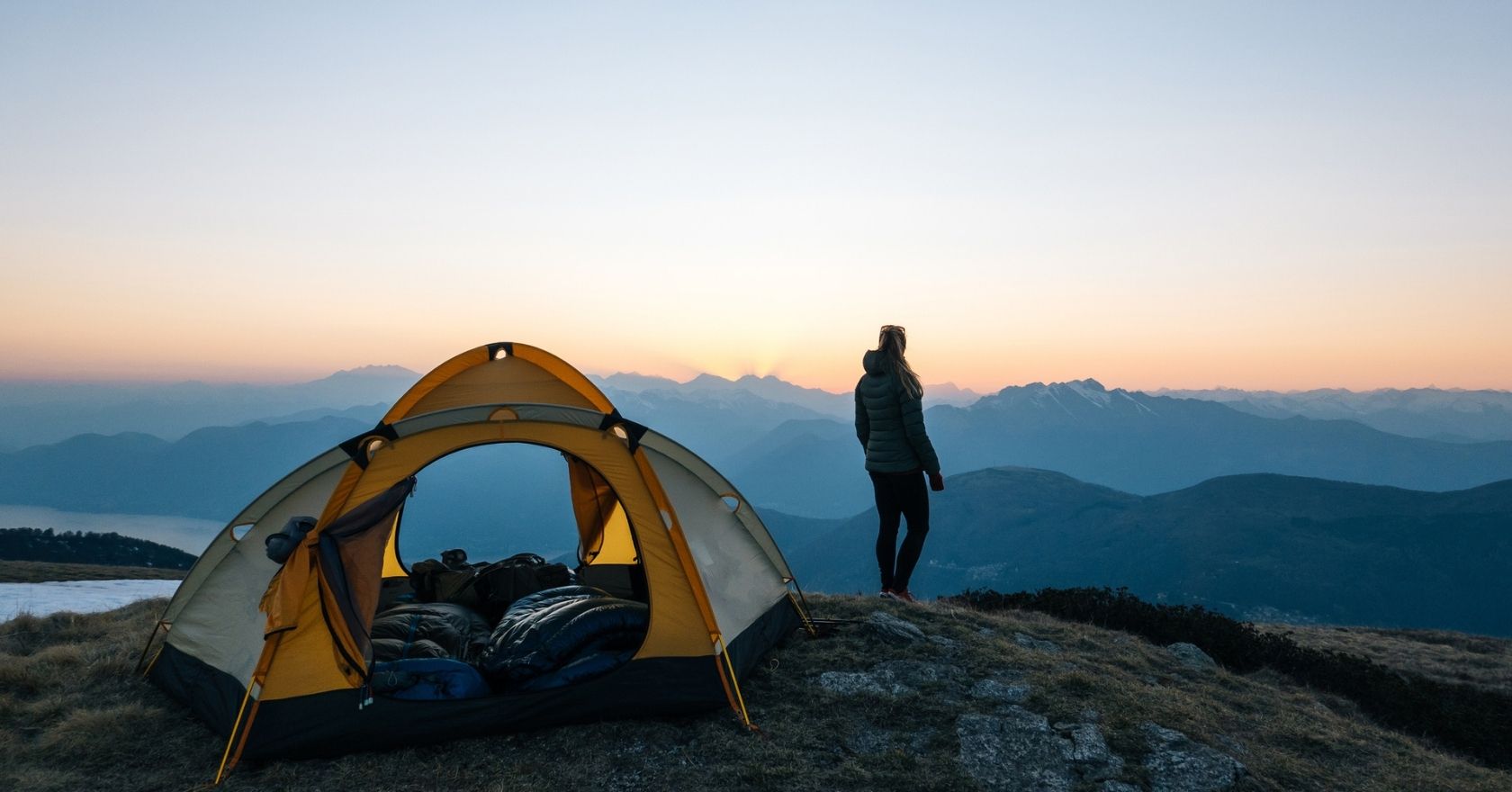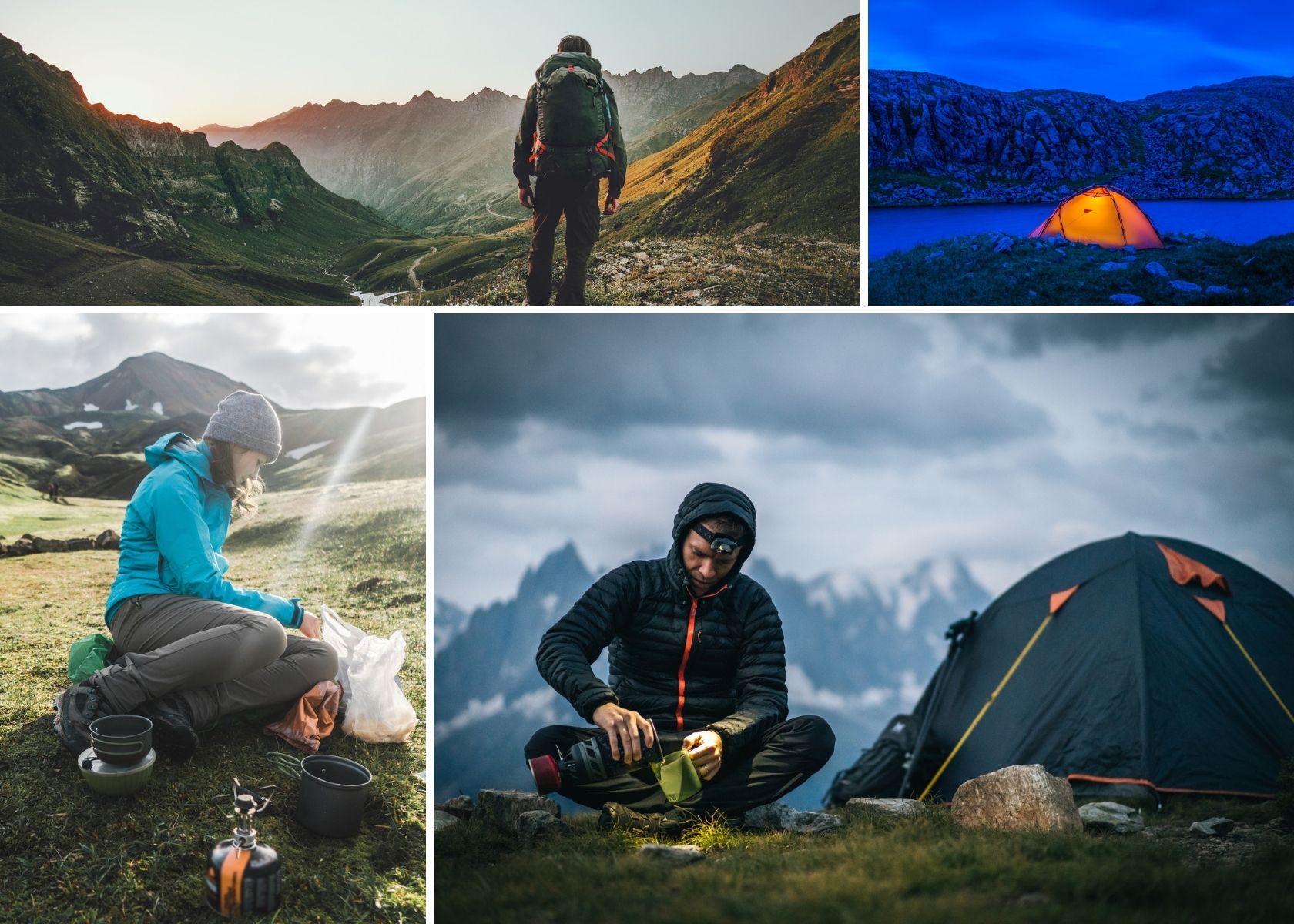UK WILD CAMPING KIT LIST AND RULEBOOK
Sometimes, you've got to take a walk on the wild side - and camp there, too. For plenty of adventurers, wild camping is the ultimate escape into the outdoors, surrounded by nothing but the UK's most rugged landscapes. Here's what you need to pack for a night of wild camping, and the golden rules you need to follow.
What is Wild Camping?
Wild camping is pitching your tent (or, for the die-hards among us, sleeping in your bivvy bag) outside of an official/authorised campsite - the more remote, the better. To get a taste for wild camping, we recommend starting local and venturing further as you gain experience.
Camping in the wild is widely welcomed in Scotland, but discouraged and technically illegal in England and Wales. That said, wild campers are usually tolerated so long as you respect the hills and local people - it's all about being considerate.
What Should I Pack for Wild Camping?
Your wild camping gear is about striking the balance between weight and comfort. You'll probably be hiking quite a dstance before you set up camp, but skimping on the essentials will stop you having a comfortable and enjoyable experience. Here's our list of essentials for getting it right:
Sleeping
A comfortable night's sleep in the wild doesn't require as much gear as you'd think. You just need to nail these basics:
- An ultralight tent, bivvy bag or waterproof and breathable shelter
- Sleeping bag
- Sleeping mat (either a roll mat, air-filled mat or self-inflating mat)
- Head torch and spare batteries
Pack
Choose a comfortable pack with a waterproof cover and enough space for your essential kit, and you'll be on your way. For multi-day treks, make sure there's enough room for food supplies.
Cooking
You don't need your whole kitchen for a few days. Pack smart and you'll have everything you need with minimal weight:
- Compact and reliable cooking stove with pot
- Fork, knife and spoon
- Bowl and mug
- Matches and lighter
- Water bottle or hydration bladder
- Purification tablets or water filter (water collected from natural flowing sources like rivers and streams must always be purified)
Footwear
You'll need tough walking boots with plenty of ankle support for navigating challenging terrain. Don't forget to visit us in-store for your expert boot fitting - trust us, you don't want to be stuck out there with badly-fitting boots.
Clothing
Mastering your environment is all about having the right technical layers for any weather: the more remote you go, the more unpredictable the conditions.
- Waterproof jacket
- Waterproof trousers
- Mid-layer for insulation
- Technical base layer to wick away sweat
- Technical walking socks to minimise blisters
- Woolly hat for in-camp warmth
What are the UK Laws on Wild Camping?
It's just manners to ask permission for wild camping when you can, but it's not always easy to find out who owns the land. The laws aren't consistent across the UK, either, so here's a quick guide. Always check before you travel, though - it's better than being caught out.
Scotland Welcomes Wild Campers
The Scottish Outdoor Access Code means that you can camp almost anywhere in Scotland. However, an exception to this rule is the East Loch Lomond Restriction Zone, which doesn’t permit wild camping in peak season to ease human impact on the area.
England and Wales Can Be Tricky
Dartmoor is England's only National Park which provides designated wild camping spots, while the Brecon Beacons has two official wild camping areas, Melte and Llech Llia. The Lake District, Snowdonia and Exmoor National Park all welcome remote one-night stops, but the Peak District, North York Moors and Yorkshire Dales all discourage unpermitted camping or bivvying.
The Golden Rules of Wild Camping
Although the laws differ throughout the UK, there are some golden rules to follow wherever you set up camp.
Be Considerate
- Camp in a small tent which blends into the landscape
- Keep your group as small as possible
- Camp on flat, dry land and never on top of crops or fauna
- Never disturb rocks, vegetation, or wildlife to make your pitch
- Camp at least 100m away from trails, roads, and residential areas
- Camp high where you’re out of sight from houses and buildings
- Pitch your tent late and leave early the next morning
- Don’t stay for more than one night (unless the National Park says otherwise)
Leave no trace
- Never start campfires and make sure you protect the ground when using your cooking stove
- Search your site after you pack up your equipment to make sure that you haven’t left anything behind
- Keep in mind this tip from long-distance walker and wild camper Chris Townsend: “always leave an area as pristine as possible so that no-one passing by will know it’s been used. If anyone ever camps there again, they too can have the joy of a real wild site and that feeling of being in untouched nature.”
Wild Camping UK FAQs
Wild camping is generally illegal in England, Wales, and Northern Ireland without landowner permission. The main exception is Dartmoor National Park, where camping is allowed in certain areas. Scotland permits wild camping under the “Right to Roam” law.
Always seek permission unless camping in permitted areas, camp discreetly, keep groups small, and stay for one night only. Respect nature, leave no trace, and avoid lighting open fires.
Bring a lightweight tent or bivvy bag, sleeping bag and mat, cooking gear, a backpack, weather-appropriate clothing, water filter, headlamp, first aid kit, and waste bags for rubbish and toileting. Prioritise pack weight and durability.
Opt for quiet, remote places away from roads, paths, and homes. Arrive late, leave early, and keep your camp impact to a minimum. Check local bylaws and landowner permissions where required.
Follow the “leave no trace” principle: pack out all rubbish, use a trowel to bury waste away from water sources, and take used toilet paper home with you.
Related Articles

Let us know you agree to cookies
We use marketing, analytical and functional cookies as well as similar technologies to give you the best experience. Third parties, including social media platforms, often place tracking cookies on our site to show you personalised adverts outside of our website.
We store your cookie preferences for two years and you can edit your preferences via ‘manage cookies’ or through the cookie policy at the bottom of every page. For more information, please see our cookie policy.





